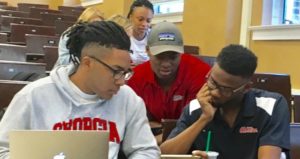
Teaching Students Specific Skills
Preparing for a keynote at a polytechnic institute got me thinking about those readers who teach students how to do something, not something abstract like thinking, but how to execute some observable skill, such as starting an IV, writing code, or wiring a circuit. Teaching skills, much like teaching in general, shares certain similarities that are relevant across a variety of degree programs. It’s good to review these and use them to take stock of how we can better help students learn specific skills.












